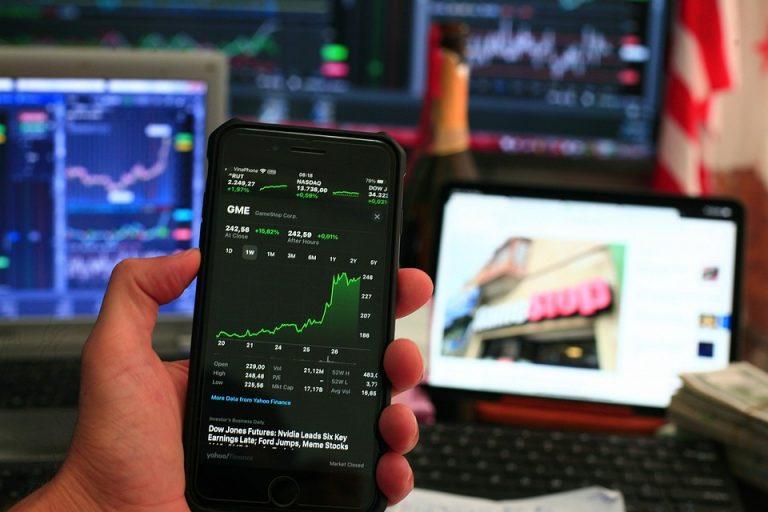Trading alerts are your secret weapon in the fast-paced world of investing. They’re not just notifications; they’re your lifeline, guiding you to make smart, informed decisions that can significantly impact your financial future. If you’re serious about growing your wealth, understanding the right trading alerts is crucial.
In this article, we’ll delve into seven must-have trading alerts that every smart investor should use. By the end, you’ll have a toolkit that empowers you to make decisions with confidence and clarity.
Contents
What Are Trading Alerts?
Trading alerts are notifications that inform you about market movements or specific conditions that may affect your investments. They can be set for various triggers, including price changes, volume spikes, or breaking news. Why do they matter? Because in the world of trading, timing is everything. The right alert can mean the difference between profit and loss.
Why You Need Trading Alerts
Think about it. You’re juggling work, family, and life. Who has time to monitor the markets every second? Trading alerts keep you in the loop without demanding your full attention. They allow you to act swiftly when opportunities arise, ensuring you don’t miss out on potential gains.
Here’s why trading alerts are essential:
- Stay Informed: Receive real-time updates on stocks or commodities you care about.
- Manage Risk: Get alerts for significant price movements that could signal a risk in your portfolio.
- Seize Opportunities: Be the first to know when a stock hits your desired price or meets specific conditions.
1. Price Alerts
Price alerts are the bread and butter of trading notifications. They let you know when a stock reaches a specific price point.
Imagine you’ve had your eye on a stock that you believe is undervalued. You set an alert for when it hits that magical number. When it finally reaches your target, you’re ready to pounce.
Why they matter:
- Buy Low, Sell High: Get notified so you can execute trades at optimal prices.
- Avoid Emotional Decisions: Alerts help you stick to your trading plan and avoid impulse buys.
2. Volume Alerts
Volume alerts notify you when there’s a significant increase or decrease in trading volume for a particular stock.
Why should you care? Increased volume can indicate strong interest, while decreased volume may signal a lack of confidence.
The benefits include:
- Spotting Trends Early: High volume can precede price movements, giving you a heads-up.
- Identifying Breakouts: Volume spikes often accompany breakouts, making these alerts invaluable.
3. News Alerts
In the age of information, news alerts are invaluable. They keep you updated on breaking news that could impact your investments—think earnings reports, mergers, or economic indicators.
Why you need them:
- Informed Decisions: React quickly to news that could affect stock prices.
- Combat Volatility: Anticipate market shifts before they happen.
4. Technical Indicator Alerts
If you’re into technical analysis, technical indicator alerts are your best friend. These alerts notify you when certain technical indicators, such as moving averages or Relative Strength Index (RSI), meet specific criteria.
Benefits:
- Stay Ahead of the Curve: Use indicators to predict price movements.
- Optimize Your Strategy: Tailor alerts to your trading strategy for maximum effectiveness.
5. Economic Indicator Alerts
Economic indicator alerts keep you informed about macroeconomic trends that can affect your investments.
From unemployment rates to inflation reports, these alerts help you understand the broader economic landscape.
Why they’re essential:
- Big Picture Awareness: Stay aware of economic conditions that could impact your portfolio.
- Strategic Positioning: Adjust your investments based on economic forecasts.
6. Portfolio Alerts
Want to keep your investments in check? Portfolio alerts notify you when your portfolio hits certain benchmarks or when specific stocks are underperforming.
The perks:
- Risk Management: Get alerts for stocks that might need your attention.
- Performance Tracking: Stay on top of your investment goals.
7. Social Media Alerts
In this digital age, social media alerts can’t be overlooked. They inform you about trends, discussions, or buzz around specific stocks on platforms like Twitter or Reddit.
Why you should consider them:
- Market Sentiment: Gauge what retail investors are saying, which can influence stock prices.
- Stay Ahead of Trends: Identify potential investment opportunities before they become mainstream.
How to Set Up Your Trading Alerts
Setting up trading alerts is easier than you think. Most trading platforms—like Robinhood, E*TRADE, or TD Ameritrade—allow you to customize alerts based on your preferences.
Here’s how to set them up:
- Choose Your Platform: Decide which trading platform suits your needs.
- Select Your Criteria: Identify what conditions you want alerts for (price, volume, news, etc.).
- Set Notifications: Choose how you want to receive alerts—through email, SMS, or app notifications.
- Review and Adjust: Periodically review your alerts to ensure they align with your trading goals.
Best Practices for Using Trading Alerts
Once you’ve set up your trading alerts, here are some best practices to keep in mind:
- Don’t Rely Solely on Alerts: They’re a tool, not a crutch. Always do your own research.
- Be Specific: Set precise criteria to avoid alert fatigue.
- Stay Updated: Regularly adjust alerts based on market changes or shifts in your investment strategy.
Closing Thoughts
Utilizing these seven must-have trading alerts can transform your investment strategy. You’re not just passively waiting for the market to tell you what to do; you’re actively taking control of your financial future.
Whether you’re a seasoned investor or just starting, these alerts provide the insights you need to make informed decisions.
Bottom Line
Trading alerts are your allies in navigating the complex world of investing. They empower you to act swiftly, stay informed, and seize opportunities. Don’t just invest—invest smartly.
So, what are you waiting for? Set those alerts and take your trading to the next level!
FAQ
What are trading alerts?
Trading alerts are notifications that inform investors about specific market conditions or movements that may affect their stocks.
How can I set up trading alerts?
You can set up trading alerts through most trading platforms by selecting your criteria and choosing how you want to receive notifications.
Why are trading alerts important?
They keep you informed and help you make timely decisions, allowing you to capitalize on opportunities and manage risks effectively.
Where can I find more information on trading strategies?
For more insights, check reputable financial websites like Investopedia, CNBC, and MarketWatch.








